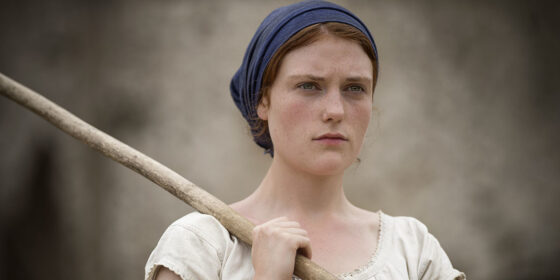The Guardians (Xavier Beauvois, France/Switzerland) — Special Presentations
By Aurélie Godet
Xavier Beauvois is an interesting case of half-tamed wildness. He knows to surround himself with the most reliable professionals—here producer Sylvie Pialat, composer Michel Legrand, and, of course, Caroline Champetier, his cinematographer since 1995’s N’oublie pas que tu vas mourir. You feel that he’s enough of a rebel to resist external pressures to abide by expectations, but that within this circle of trust Beauvois allows himself to take chances, such as, with The Guardians, shooting for the first time in digital. Surprise, for himself and for his viewers, is one of the benefits that come with change. Protected, he also finds ways to break free from film types. If you expect a French wartime drama on a family of farmers to be necessarily stilted and tedious, you may want instead to consider this tale of conquest against hardship as a variant on the Western.
Sources of inspiration are respectfully disrespected, too. Here Beauvois for the first time adapts a novel—written in 1924 by Ernest Pérochon—and gives his full attention to a reduced number of characters, featuring lead actress Nathalie Baye, another trusted partner (Le petit lieutenant, Selon Matthieu). The female-centric story takes place in rural France, a year into World War I, as Hortense (Baye) is left in charge of the family’s farm after all of the men, except for her aging father, have been mobilized to the front. Her daughter Solange (Baye’s real life daughter Laura Smet) helps out, but the excess of work demands hiring an extra hand, and the young Francine moves in. Here’s another surprise to savour: the actress who plays Francine, Iris Bry, a newcomer cast on the street, is a natural, fully living up to her character’s gradually increasing prominence in the story.
Beauvois wins on several fronts: The Guardians is a realistic period piece without too much starch, and a balanced mix of romance and tragedy, with the distant war painfully present. While treating us with flashes of van Gogh-inspired beauty when the women are plowing and sowing, he trusts us to put together that these wheat-field warriors really are the pioneers of modern agriculture.
Aurelie Godet


